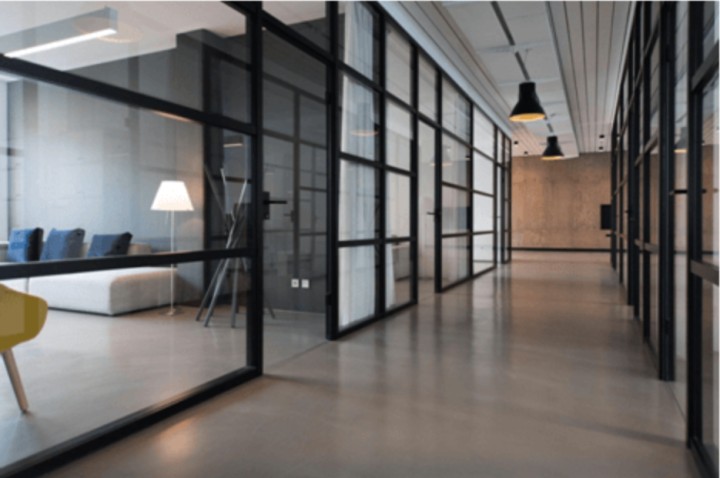
Every business needs to have an office where they can conduct business activities. Some may start with a small office since they are still new. But as their business grows, they will need a bigger office space to occupy the many employees and business resources. However, choosing a new office space is difficult, especially if you do not know what your company will need from the office.
You need to keep in mind the requirements when choosing your new office space. Every part of the new office should accommodate all of your workers’ and business’ needs. These requirements are critical if you do not want to end up regretting your new office space. This article will guide you in getting the perfect office space for your business.
1. Take Note of the Space
Before anything else, you have to figure out what the size of your new office should have. In some instances, small companies prefer to have a large office space right away since they plan on expanding as quickly as possible. You should always take note of which direction where you want your business to head in the future.
A great rule of thumb when looking for new office space is to give a minimum of 70 square feet of space for every person inside the office. The office should also contain necessities such as kitchen spaces bathroom space with urinal partitions, and conference rooms. As long as you provide a comfortable office space for employees to work in, you should expect an increase in work productivity.
You’ll also need to keep in mind how your office will be used. Will the majority of your employees work remotely most of the time? In that case, you may not need as much space. Will clients often visit for meetings, or will it usually just be staff in the office? This affects how many conference rooms you may need, how the front entrance should be arranged, and where work areas will be located. You typically don’t want visitors walking through employee work areas. If you expect lots of visitors, you’ll probably want a front reception area and multiple conference rooms.
Also carefully inspect the condition of the place, just like you would when purchasing a home. Look at the lighting and air conditioning. You want to maintain a comfortable and safe environment for your workers and visitors, and the condition of the office will go a long way to determining that. Check the Internet and phone connections, electrical outlets, kitchen, break area, and closets and storage.
2. Decide Whether to Buy or Rent
The next factor worth noting is whether your company should buy or rent an office space. You should think about your company and where it’s headed in the long run. If you plan on buying, you may save your company valuable resources in the long term. If you rent an office space, you have rent to pay every month or year and it might not be cost-effective. Make sure you weigh the two options before you decide.
You also need to decide what furnishings you want. Some offices come completely empty, while others have furniture and cubicles already installed. It depends on how much customization you want to do and how much you want to pay. You’ll pay less upfront for an empty office space, and can customize it to fit your needs, but you’ll have to get your own furniture and accessories and move it all in.
3. Office Space Price
The new office space you choose should always be worth the price. Most office spaces are usually priced depending on their space, amenities, and location. You need to personally check the entire office space to determine whether you are willing to pay their asking price or not. There have been many instances where business owners paid more for their office space than their accommodations warranted. Ensure you correctly plan out your company’s budget so that you can choose the best office space while sticking to the budget.
A good tip is to ask the real estate agent if there are hidden costs such as parking costs, maintenance costs, etc. You should also ask whether the space comes with office furniture and other utilities. This can further help you adjust or add more money to the company budget and avoid any monetary loss in the long run.
4. Consider the Office Location
You need to ensure that your office is easily accessible and identifiable so that everyone will know your company name and where it is located. Having people know how to find your office is critical if you want your business to succeed. The best locations for office spaces are usually near the city, like the downtown area, since many people and other businesses are located there. You should know where most of your clients are located and have your office placed near them. This makes it convenient for clients to travel to your office whenever they need to.
A location in the city may be more expensive, but it helps build your brand image in the minds of clients and prospective employees. A downtown location is also good for employees because it’s convenient to amenities like restaurants, public transportation, local gyms, and apartments and condos. This makes your office more attractive to prospective workers. But even a great office isn’t a good fit if most employees can’t get to it easily. Look at subway and bus routes and street maps to see whether your location is on a convenient travel route.
5. Property Infrastructure
As the years go by, commercial buildings add all sorts of technological features to put them ahead of the competition. An example is a building’s fire protection system, which they upgraded to become more efficient in extinguishing building fires. Another is a fast and reliable internet connection, an essential feature that any office space should have. Every company needs to have a high-speed internet connection to interact with clients, fill out paperwork, or manage its website.
6. Parking Area
Most of your employees may have vehicles that they take to work. The new office space you get should have a parking lot within or nearby the building. It’s not ideal to have people park their car far away from their office. However, you may need to pay whenever you use the building’s parking lot. But if you frequently use your vehicle, it’s a worthwhile investment since you save yourself the hassle of finding a parking spot. These buildings usually offer monthly parking fees where you can reserve your parking spot. However, if you’re located in San Francisco and you have a monthly parking San Francisco permit, there are companies which offer you the opportunity to book a parking spot online, so you save and money, but the parking rates vary by neighborhood.
7. Read the Purchase or Lease Terms Carefully
After examining the new office and its location, don’t immediately sign on the dotted line. The seller or landlord may want to get you to sign quickly, but read the agreement carefully. There may be hidden charges or terms. Also look at the lease period. If you decide the office isn’t a good fit after all, but are stuck in a long-term lease, that may be a problem; likewise if you love the location but have to go to the effort and expense of moving again when the lease expires.
As long as you remember these simple guidelines, you can choose your new office space without a problem. You can always consult professional real estate agents to give you additional details about choosing a new office space.
We hope you found this blog post A Guide to Choosing Your New Office Space, useful. Be sure to check out our post 12 Office Design Ideas That Will Inspire Your Employees for more great tips!
Have Experience in the Moving Industry? Want an Additional Income Stream? Work With All Around Moving!
Partner with us and we’ll help you profit. Click here to learn more.





